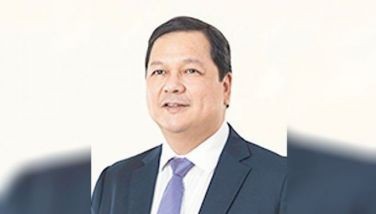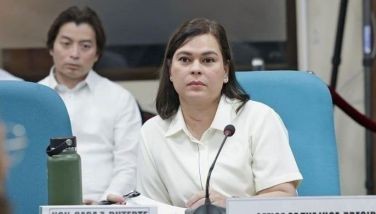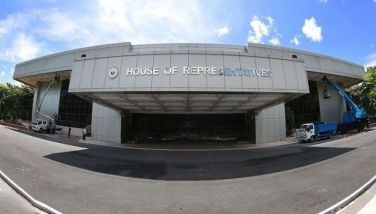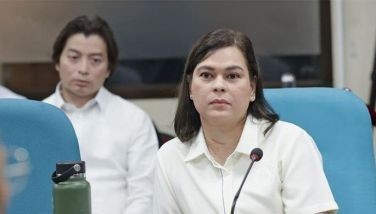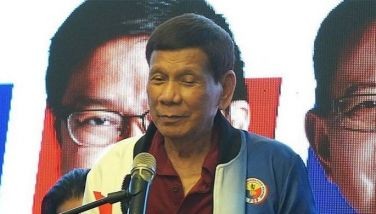What the country needs in a dict secretary

The drafters of the law creating the Department of Information and Communications Technology (DICT) surely had the best of intentions in setting forth the qualifications of the secretary that would lead the government agency tasked with “the primary policy, planning, coordinating, implementing, and administrative entity of the Executive Branch of the government that will plan, develop, and promote the national ICT development agenda.”
“SEC.11. Qualifications. – No person shall be appointed secretary, undersecretary, or assistant secretary of the department unless he or she is a citizen and resident of the Philippines, of good moral character, of proven integrity and with at least seven years of competence and expertise in any of the following: information and communications technology, information technology service management, information security management, cybersecurity, data privacy, e-commerce, or human capital development in the ICT sector.”
These qualifications, while detailed, also left it wide enough for anyone with exposure to ICT to qualify for the job. But as we have seen, it takes more than this to run such a vital government agency with wide ranging reach – as can be expected from digital technology which permeates every aspect of our lives, no more so than in the realm of public governance.
Salalima obviously met the criteria set by the law, but he only lasted a little over a year. He resigned from the post on Sept. 22, 2017 citing corruption and interference as his reasons for resigning, although he did not provide specifics.
In his place, DICT Undersecretary Eliseo Rio Jr. was appointed as officer-in-charge (OIC) of DICT. An electronic engineer by training, Undersecretary Rio cut his teeth on ICT in the military – dealing with, among others. ICT deployment within the military and cybersecurity. He also obviously met the criteria set forth in Section 11 of the law creating the DICT. As we commented in earlier columns, he has done well under the circumstances, but has been preoccupied with the infrastructure requirement of a digital society– in particular, the selection of a third telco provider. It is true that a well-functioning and inclusive digital infrastructure is a pre-requisite for a digital economy of the 21st century. But it is only one leg of what it takes to build a digital economy. The other two are a digital technology savvy work force and consumers and a policy and regulatory environment supportive of a digital ecosystem, i.e. in terms of encouraging innovation, investments and adoption of digital technology.
Multi-stakeholder commission
The wisdom that can be gained from the brief existence of the DICT, in my view, is firstly, that its structure is perhaps not well suited for its mandate. Giving it a Cabinet level status is critical, but while a line department can give it the regulatory clout, it also exposes it to the bureaucratic processes that ultimately undermines its implementation capability. Being of equal status to other line departments presents the challenge of implementing a wholistic approach that digital society readiness requires. As I said in the beginning, digital technology permeates all aspects of our existence: governance, education, labor, health, commerce and industry, agriculture, among others. This is why I have advocated a multi-stakeholder commission to develop and oversee implementation of our digital society readiness blueprint and that perhaps, the NEDA Board might be the more appropriate body to do this. No less than the presidential stamp of authority and commitment is required to accomplish this as our ASEAN neighbors have shown. It is significant to note that platforms like Lazada and Zalora have not been consulted in the drafting of the e-commerce roadmap, according to Joey Concepcion, presidential adviser for entrepreneurship.
That said and given the current reality, the appointment of the next DICT secretary, has become more critical at this stage as our neighbors have progressed beyond us as shown by the statistics I cited in my column last week. The current mindset seems to be biased towards the telecoms/digital infrastructure and it has been proven that it takes more than that. Here is what I think the attributes that the next DICT secretary should possess.
First, the DICT head should be reasonably familiar with ICT matters, not so much technically but more about its future directions and where it can be deployed in the Philippine context to improve its global competitiveness and impact people’s lives in an inclusive manner. He should have a good perception of intended outcomes and then work backwards to address the issues that impede achievement of those goals. The importance of good staff work in partnership with the private sector cannot be underestimated.
Secondly, it being a political position, the DICT head must have the stature and clout to comfortably work with the President, the heads of other government agencies, with Congress and Senate, and with the private sector and civil society. He must be able to inspire imagination and enthusiasm for what the digital future holds to get all these stakeholders to buy in and generate the necessary political will and public support. This will require him or her to be sensitive to the impact of ICT policies on the general public, for they are end-users of ICT services. The satisfaction of end-user needs, as well as, gaining their good will and their support would be of paramount importance.
Thirdly, and most crucially, because he will be central to the procurement of the hard and soft requirements of a digital society, either in terms of direct purchase or in setting the standards for procurement – e.g. telecoms infrastructure and equipment and applications - he should be instinctively reflexive in guiding the study or project groups in the right direction to avoid stalemate situations and instead get to successful implementations. That can be accomplished by providing hard evidence – technical and otherwise – to justify any decision.
Hopefully, someone takes heed and does the right thing for our country’s future.
- Latest
- Trending


























